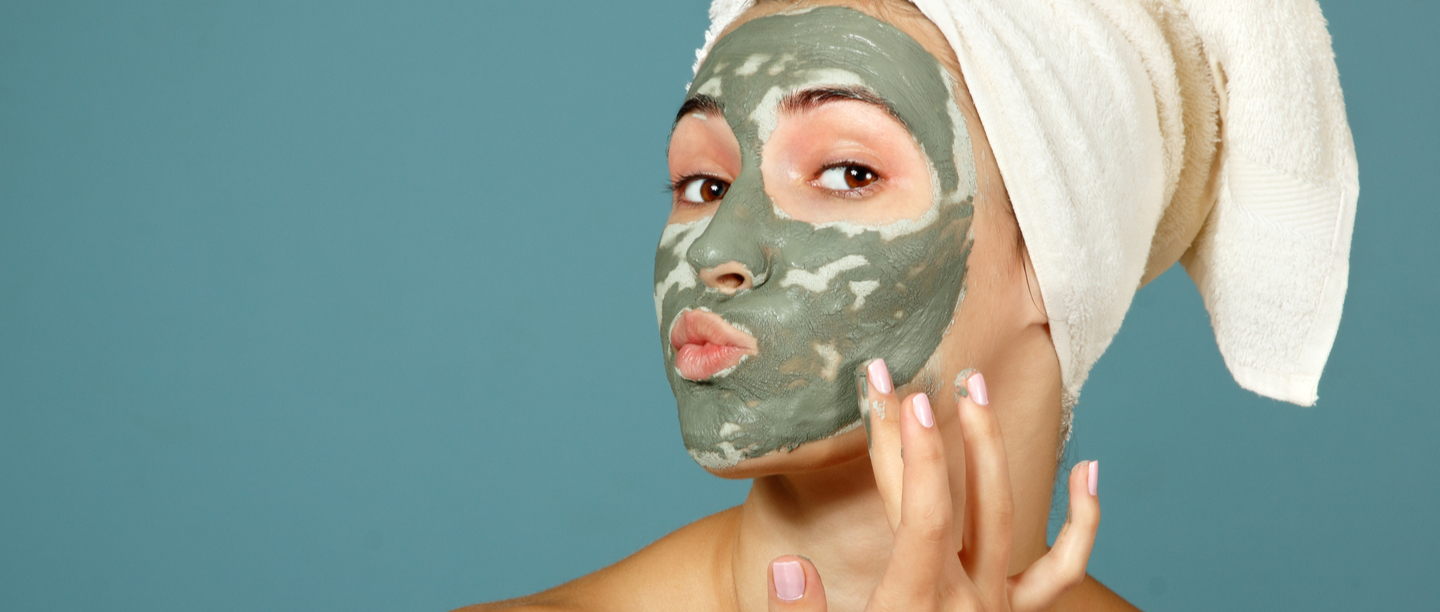
Masking has become one of the most popular beauty activities during the pandemic. What’s not to love about a good, old face mask? They keep the skin squeaky clean, fresh and radiant! While there are plenty of face masks out in the market, two of them have garnered the most attention – charcoal and clay masks.
Which One Is Better – Charcoal Or Clay Masks?
Before we compare the two, let’s learn about them more as skincare products!
What Is A Charcoal Mask?
Shutterstock
They’re all over the ‘Gram for a reason! You see, charcoal masks work as detoxifiers that help to unclog the pores and draw out impurities from the skin. There are several types of charcoal masks available in the market such as peel off, gel and wash off masks. The best part of using any charcoal mask is that they’re non-comedogenic (they won’t stick to the pores, clog them or fill them with toxins and product residue) Charcoal masks work great with people who have oily or acne-prone skin types.
What Is A Clay Mask?
Shutterstock
Calcium bentonite clay is one of the main ingredients found in clay masks today. While a clay mask helps to remove impurities from the skin, it does not dry the skin out in the process. If you take a closer look at a clay mask‘s ingredient list, you will either spot salicylic acid, hyaluronic acid or retinol. Each ingredient targets different skincare concerns. Choose one that works for your skin’s type and condition.
Pro Tip: After washing off the clay mask, apply a moisturiser to keep the skin hydrated, supple and nourished. If you’re feeling a bit indulgent, perhaps slip into a sheet mask!
What Are The Key Differences Between A Charcoal & A Clay Mask?
Both face masks are unique in their own way, the charcoal mask is designed to remove oil and toxins from the pores. However, they aren’t suited for people with extremely dry skin as the product further tends to dry the skin out. Clay masks, on the other hand, clean the skin and hydrate it at the same time. It’s best for sensitive skin types.
The decision to invest in either of these face masks depends on your skin type.
- If you have oily and acne-prone skin, choose charcoal.
- For sensitive, combination and dry skin, choose clay masks.
- If you have normal skin, the world is your oyster, girl!
Before we bid adieu, it’s important to pay attention to the ingredient list of each face mask. Some of them contain fragrances, preservatives, artificial colouring, parabens and other such toxic ingredients that can be harmful to the skin. Always do a patch test before applying the mask to your skin. If you experience any burning sensation post application, you should wash off the mask with lukewarm water immediately.
Featured Image: Shutterstock